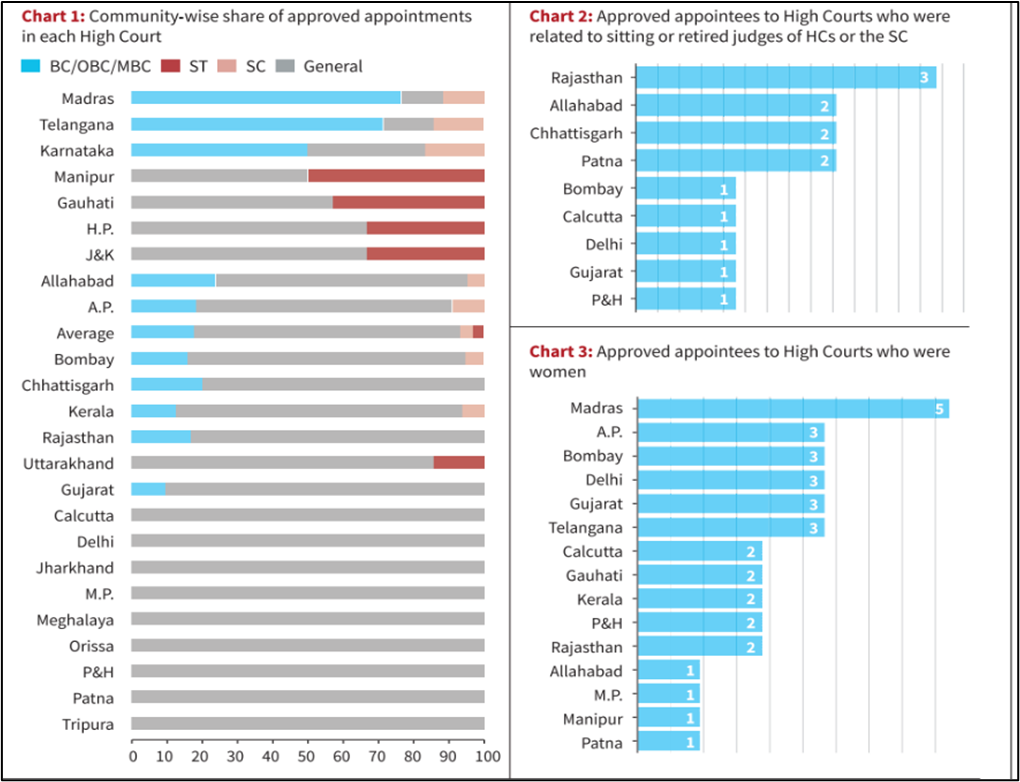PREVIOUS
Madras HC judge picks
May 22 , 2025
8 hrs 0 min
36
0
- During the tenure of the Chief Justices D.Y. Chandrachud and Sanjiv Khanna, authorities appointed 15 out of 17 judges to the Madras High Court from BC, OBC, MBC, SC, or ST communities.
- Out of 34 women appointed, several were belonged to BC, OBC, MBC, SC, or ST communities.
- 5 women were appointed at the Madras High Court, including one from BC, one from MBC, and three from OBC categories.
- The States like Telangana, Kerala, Andhra Pradesh, Rajasthan, Guwahati, and Manipur have women appointees from various non-general groups.
- The Andhra Pradesh High Court recorded a 27.3% share of appointees from the non-general categories, which is higher than the national average of 24.4%.
- The representation of individuals from the non-general categories was relatively higher in the southern States.
- Only in Kerala, less than 20% of the approved appointees were from non-general categories.
- On contrast, all the appointees approved to nine High Courts — Calcutta, Delhi, Jharkhand, Madhya Pradesh, Meghalaya, Orissa, Punjab and Haryana, Patna, and Tripura — were from the general category.
- In Gujarat, Uttarakhand, and Rajasthan, the share of approved appointees from the non-general categories was below 17%.
- Bihar, which has over 12.2% of India’s OBC population, contributes less than 8% of OBCs in higher education nationwide.
- Tamil Nadu is home to about 10% of India’s OBC population, it accounts for about 13% of OBCs enrolled in higher education nationally.

Leave a Reply
Your Comment is awaiting moderation.


